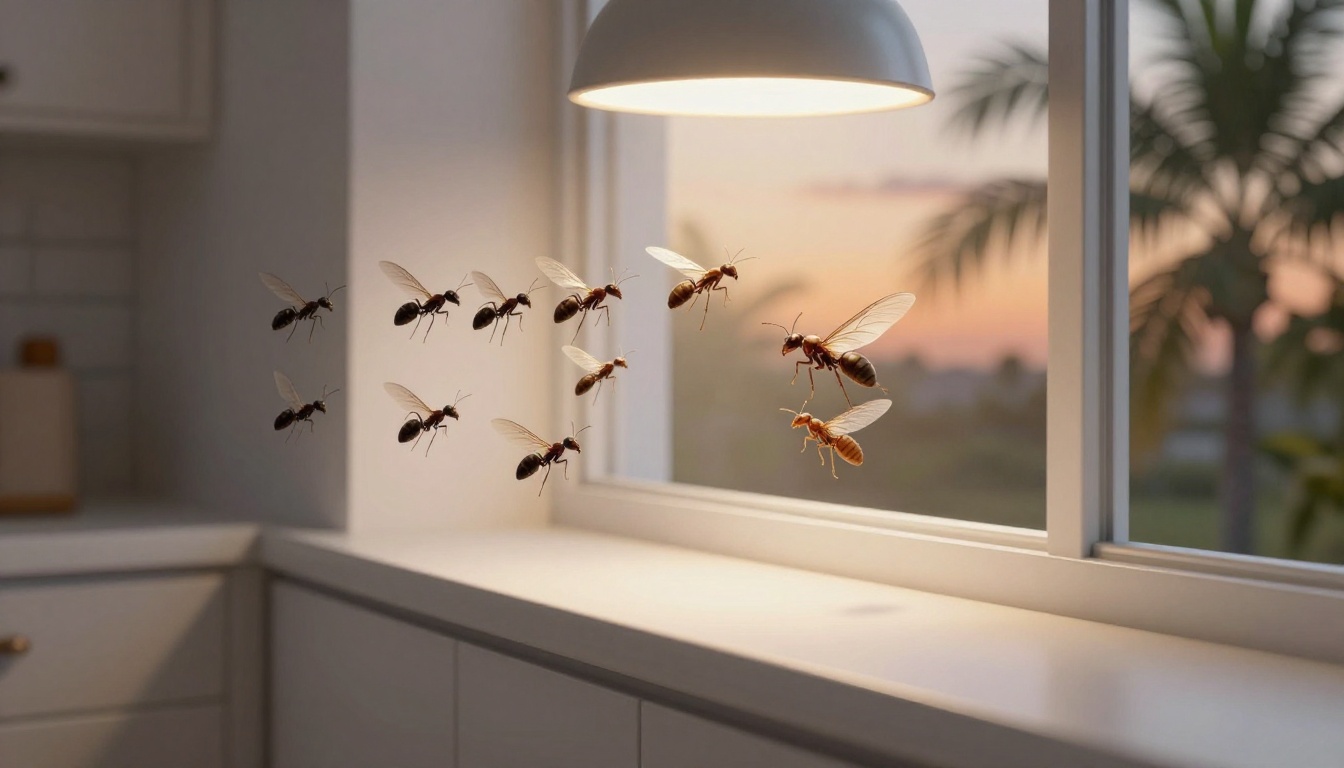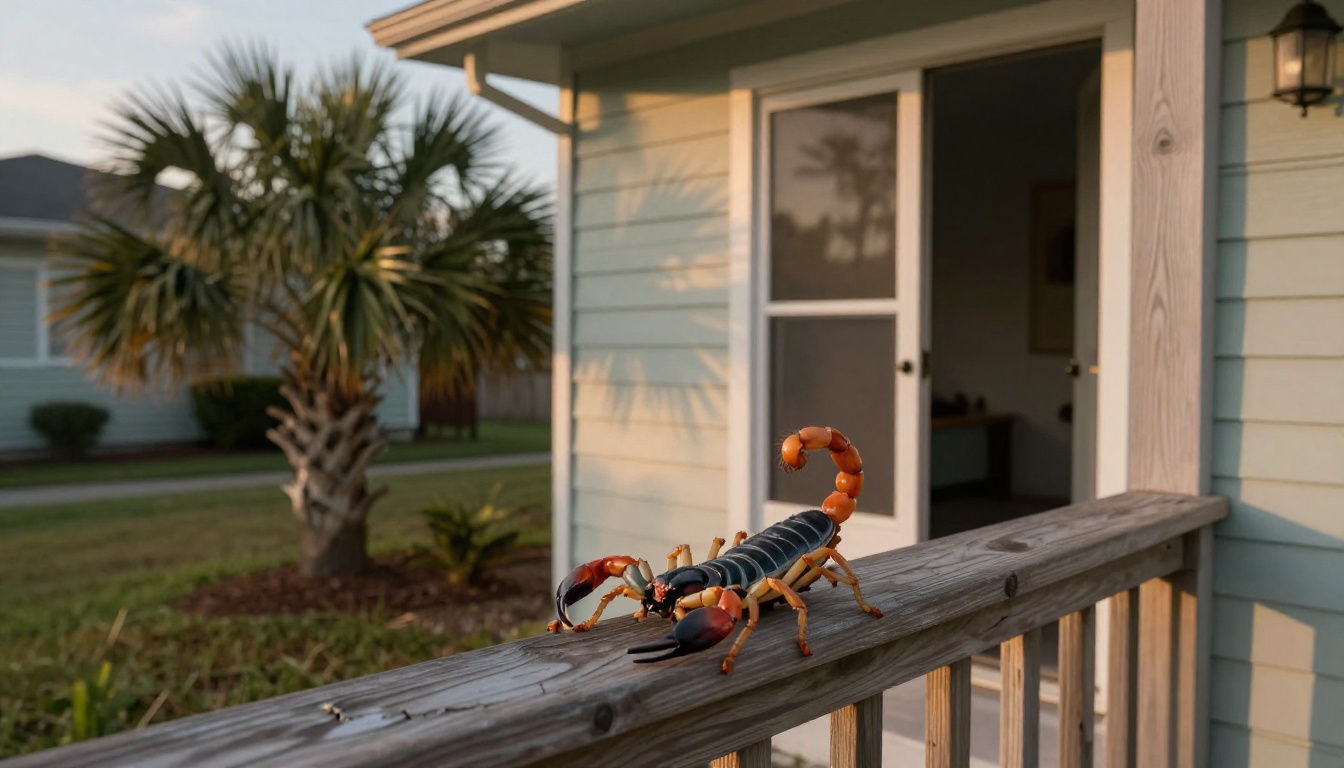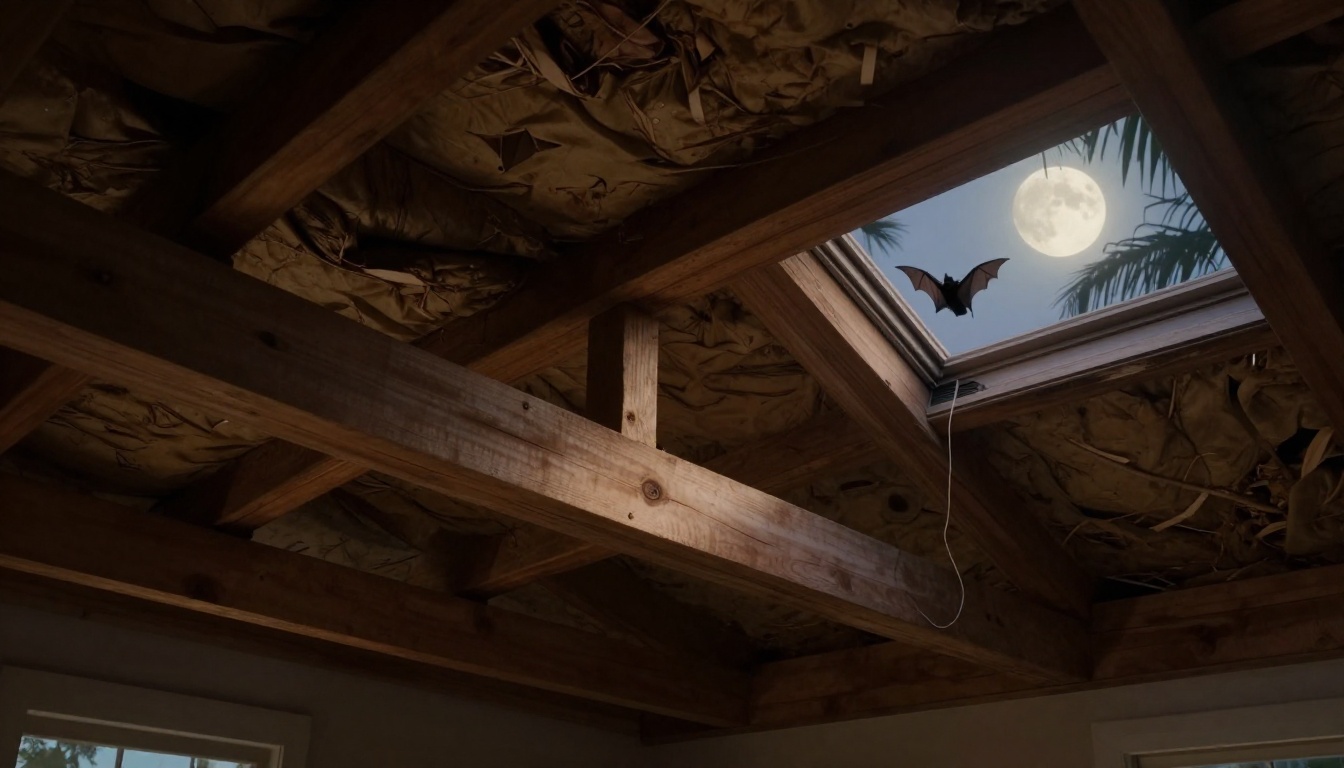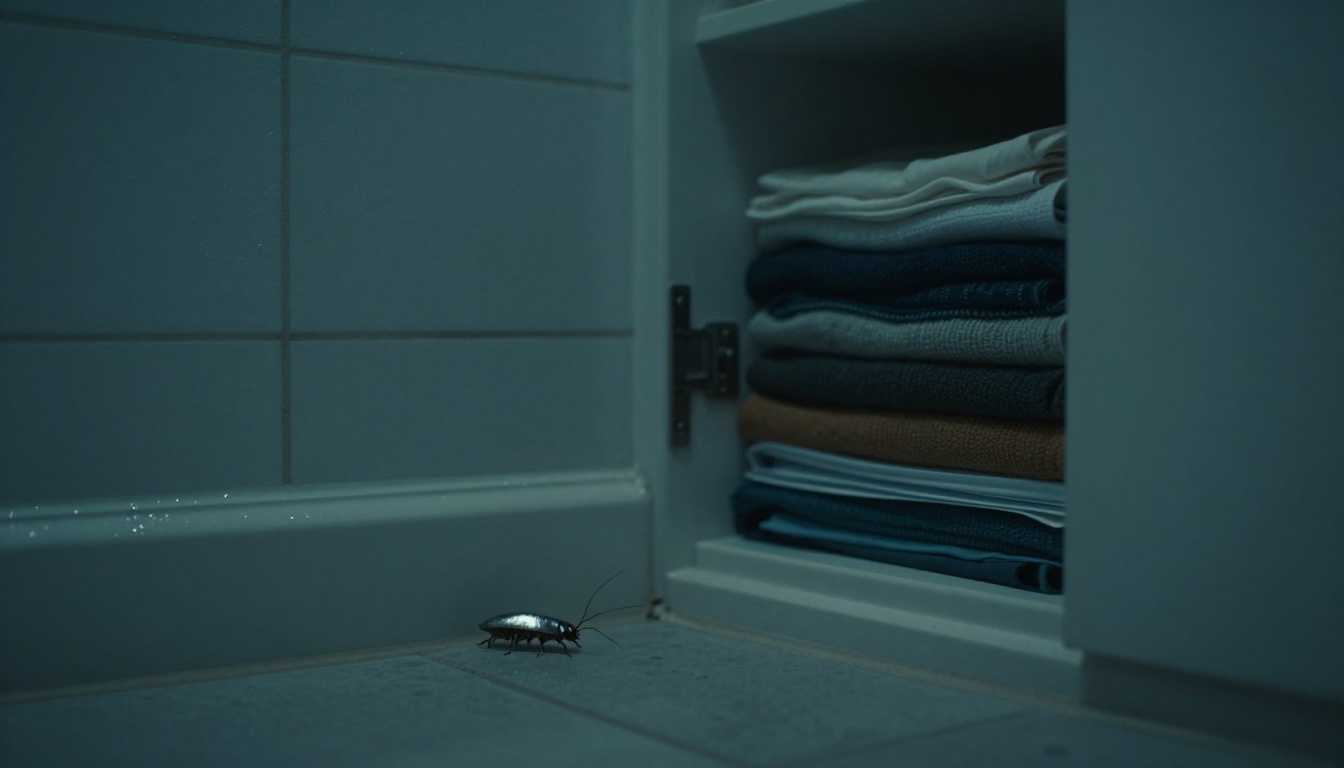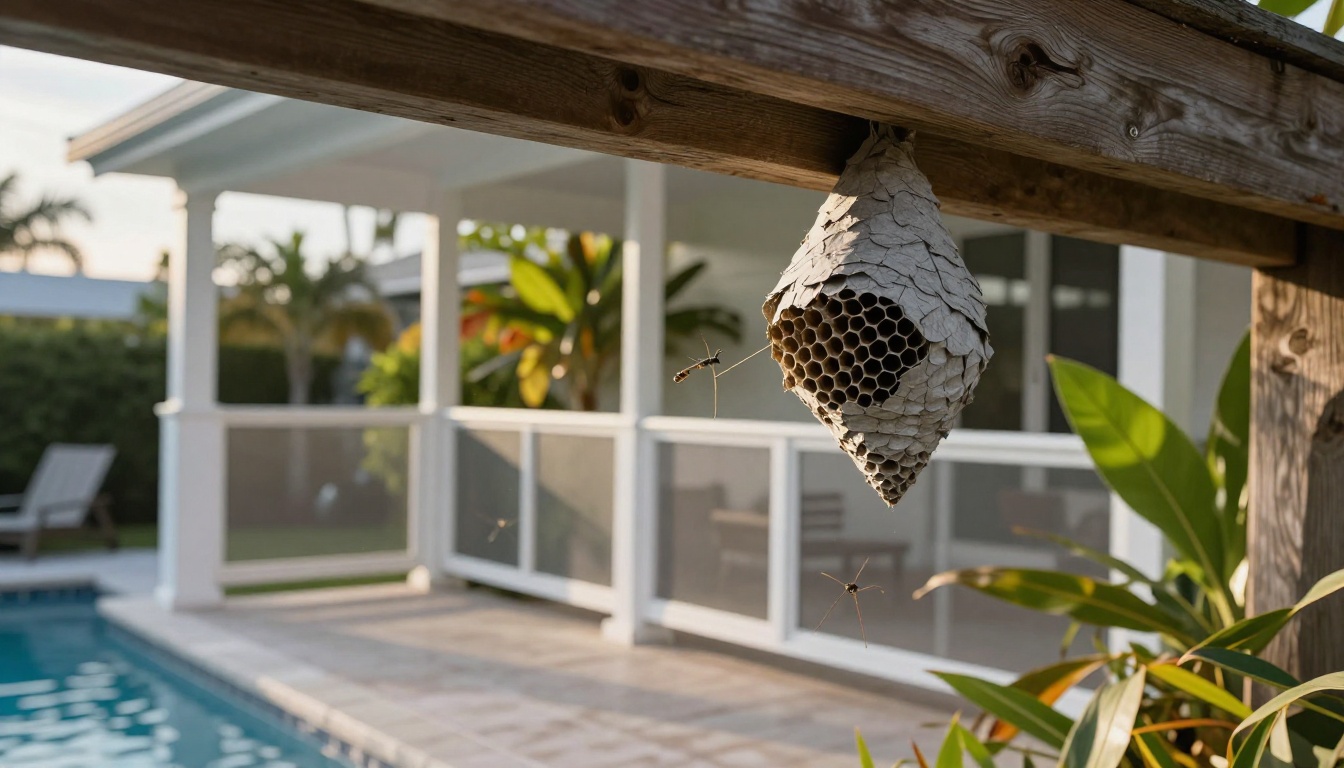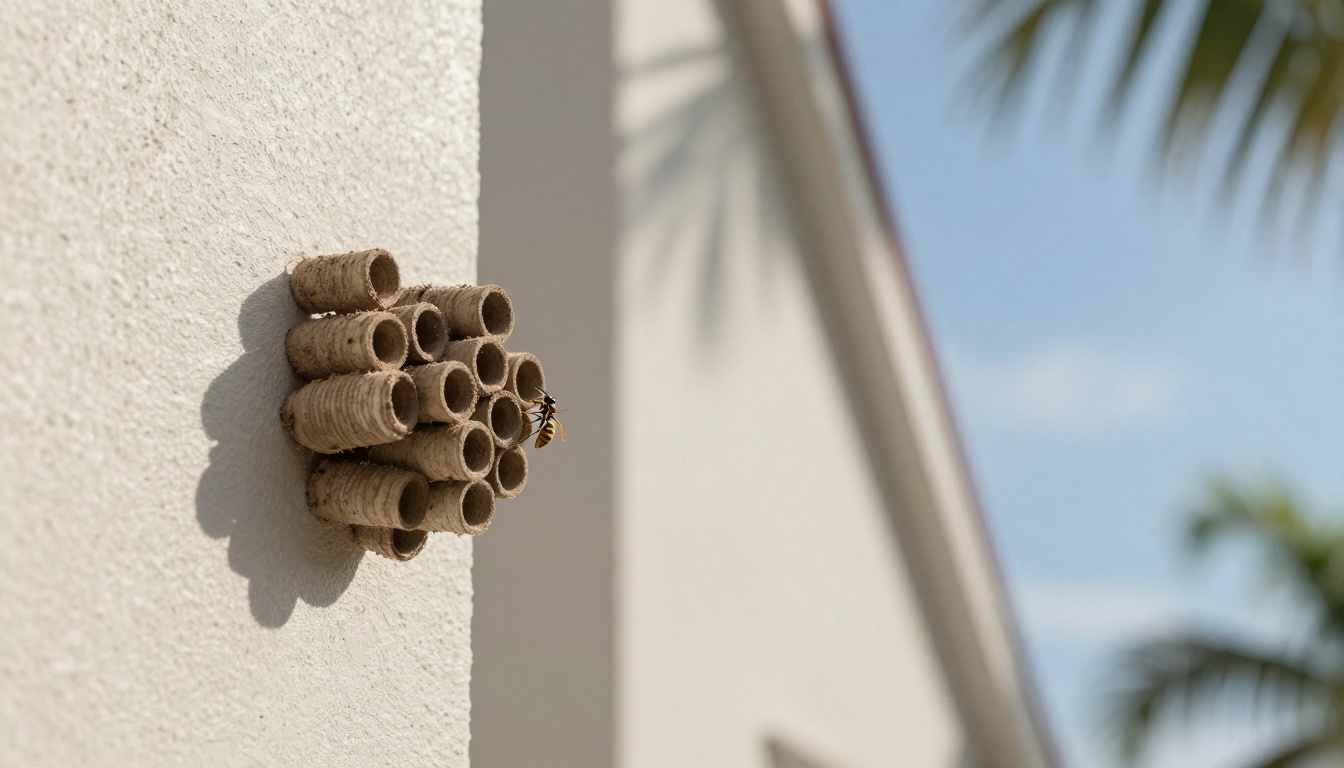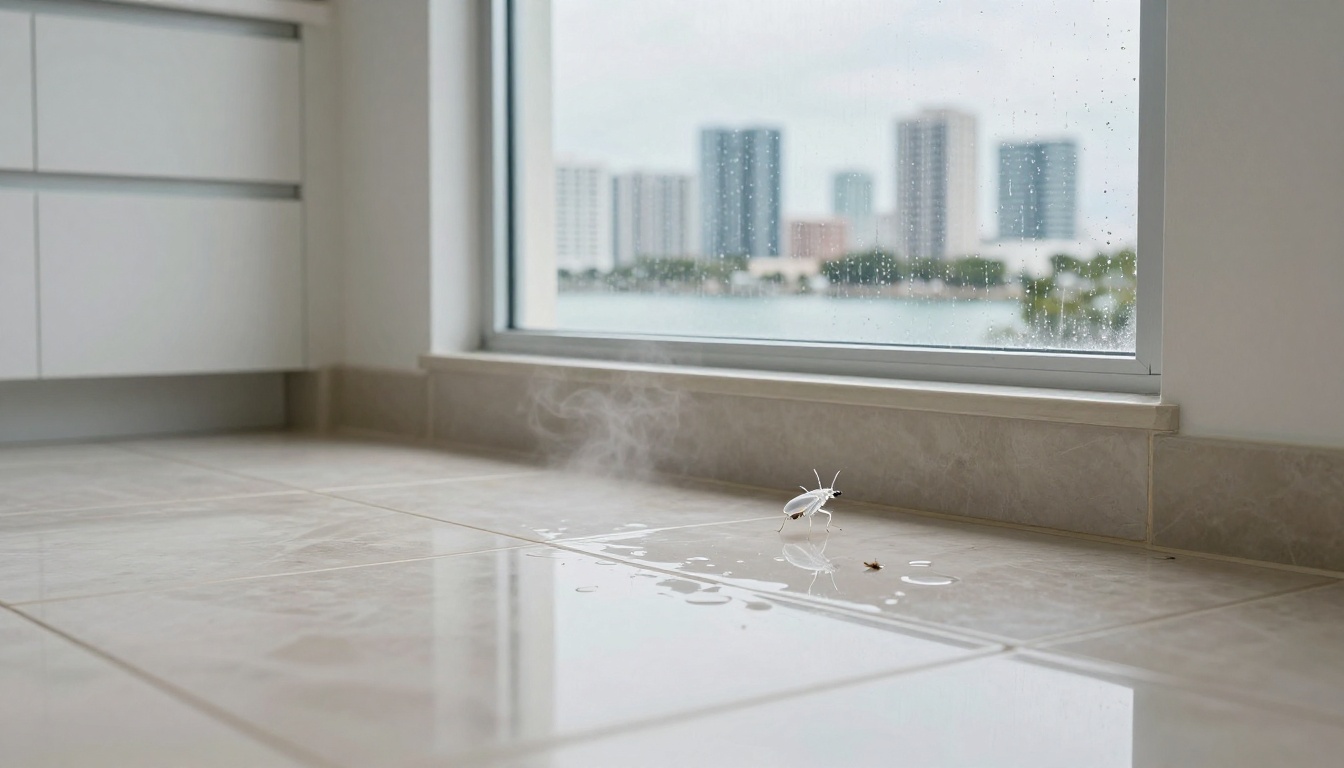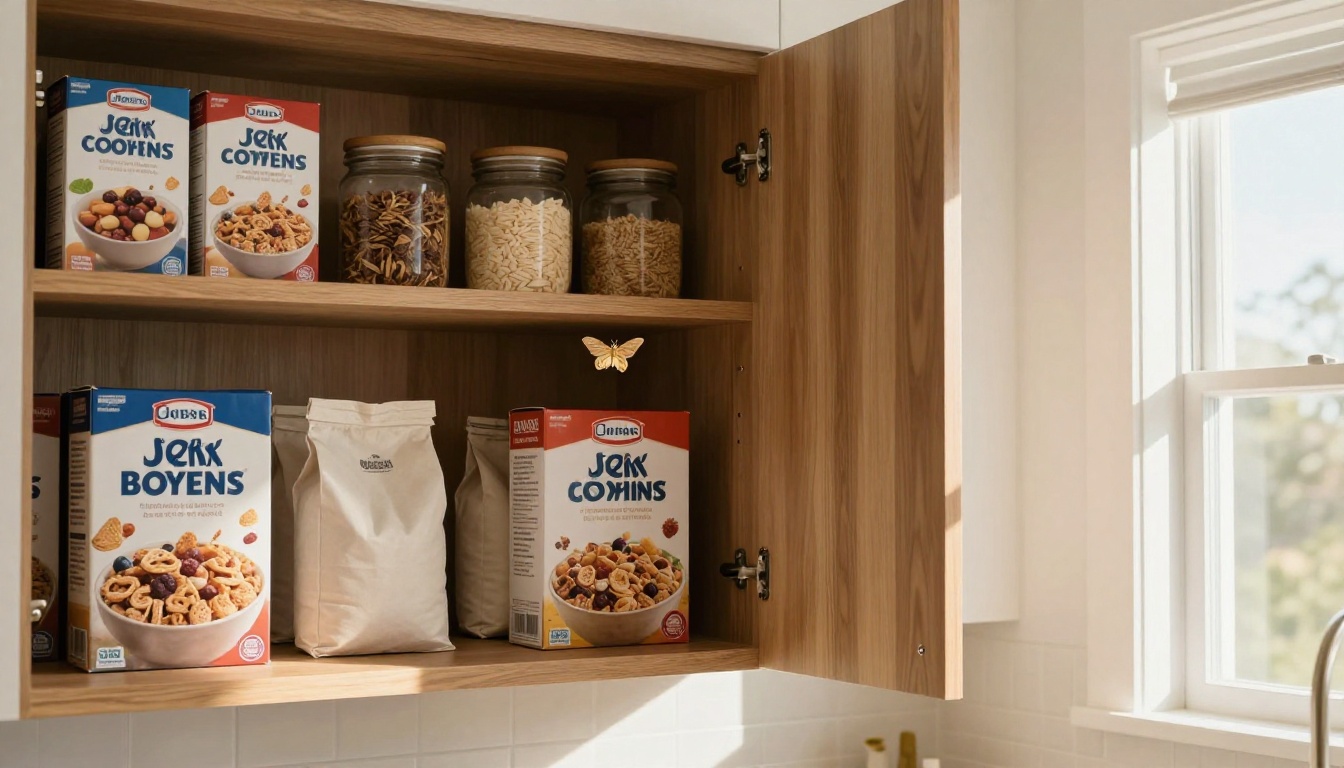How to Spider-Proof Your Cape Coral Home
How to Spider-Proof Your Cape Coral Home
Understanding Spider Behavior in Cape Coral
Cape Coral's subtropical climate creates an ideal environment for spiders, as the warm and humid conditions support both their survival and reproduction. This region is home to a variety of spider species that thrive in such weather, often seeking shelter indoors when outdoor conditions become too extreme. The abundance of insects in the area also plays a significant role, as spiders are naturally drawn to places where food sources are plentiful.
Spiders tend to enter homes in search of protection from harsh weather, cooler temperatures, or predators. They are opportunistic creatures, often finding their way inside through small cracks, gaps, or open doors. Once inside, they gravitate toward quiet, undisturbed areas like basements, closets, and corners where they can build webs and hunt for prey. Understanding these behaviors is the first step in effectively preventing them from making your home their own.
Common Spider Species in Cape Coral
In Cape Coral, homeowners often encounter several types of spiders, some harmless and others potentially dangerous. Among the most common are black widows, known for their venomous bite and distinctive red hourglass marking, and brown widows, which are less aggressive but still pose a risk. Brown recluse spiders, though rare, are another concern due to their necrotic venom. Other frequent visitors include the golden silk spider, wolf spider, jumping spider, and yellow sac spider, each with unique traits and behaviors. You can learn more about this variety of spider species in our detailed guide.
While many spiders, like the common house spider, are harmless and even beneficial for controlling insect populations, it’s important to be cautious around venomous species. For instance, wolf spiders are large and intimidating but rarely bite unless provoked, while jumping spiders are curious and agile hunters. Knowing how to identify these species can help you determine the level of risk they pose and whether professional assistance may be needed.
Why Spiders Enter Homes
Spiders typically enter homes for three main reasons: seeking shelter from weather, hunting for insects , or finding undisturbed spaces to build webs and lay eggs. Cluttered areas, such as storage rooms or basements, provide perfect hiding spots, while poorly sealed windows and doors offer easy access. Regular cleaning and maintenance can significantly reduce the likelihood of spiders taking up residence in your home.
Essential Preventive Measures
One of the most effective ways to keep spiders out is by reducing outdoor lighting or switching to insect-resistant bulbs. Lights attract insects, which in turn draw spiders closer to your home. By minimizing this food source, you make your property less appealing to spiders. Additionally, consider trimming vegetation away from the house to eliminate natural pathways for spiders to follow.
Sealing cracks, gaps, and entry points is another critical step in spider-proofing your home. Pay close attention to areas around doors, windows, and the foundation, as even small openings can serve as entryways. Use caulk or weatherstripping to close these gaps, ensuring a tight seal that keeps spiders and other pests out. This simple yet impactful measure can save you from future infestations.
Finally, decluttering and maintaining cleanliness are essential for preventing spider activity. Spiders thrive in messy environments where they can hide and build webs unnoticed. Regularly organizing storage areas, vacuuming floors, and dusting corners will disrupt their habitat and discourage them from settling in. Consistent effort in these areas goes a long way toward keeping your home spider-free.
Natural Repellents and DIY Solutions
For those who prefer natural solutions, options like peppermint oil, citrus peels, and vinegar can be surprisingly effective at repelling spiders. These substances disrupt spiders' sensory systems, making them avoid treated areas. To use them, mix a few drops of peppermint oil or vinegar with water in a spray bottle and apply it around windows, doors, and other potential entry points. Citrus peels can be placed strategically in corners or along baseboards for added protection.
In addition to natural repellents, sticky traps are a practical DIY solution for monitoring and controlling spider populations. Place these traps in high-traffic areas, such as near doorways or in dark corners, to catch wandering spiders. While these methods won’t eliminate large infestations, they can help manage minor issues and complement other preventive measures.
Effective Cleaning and Home Maintenance Practices
Consistent cleaning is one of the best defenses against spiders. Vacuuming not only removes visible spiders but also eliminates webs, egg sacs, and tiny insects that serve as food sources. Be sure to empty the vacuum contents outdoors immediately after use to prevent any captured spiders from escaping back into your home. Pay special attention to ceilings, corners, and rarely used rooms, as these are prime locations for web-building.
Regularly inspecting and removing webs is another crucial practice. Webs act as both shelters and hunting grounds for spiders, so disrupting them interrupts their lifecycle. Use a broom or duster to clear webs from hard-to-reach areas, and repeat this process weekly to maintain a spider-free environment. Combining these efforts with other preventive strategies will yield the best results.
When to Call a Professional Pest Control Service
While DIY methods can handle minor spider problems, there are situations where professional intervention is necessary. Persistent infestations, bites from venomous spiders, or unsuccessful attempts at control are clear signs that expert help is needed. Professional pest control services , like those offered by Shield Pest Control Solutions , provide thorough inspections and targeted treatments tailored to your specific needs.
Pest control experts utilize advanced techniques and eco-friendly products to address spider issues effectively. They also offer long-term prevention plans, ensuring your home remains protected year-round. If you’re dealing with a severe infestation or simply want peace of mind, partnering with a trusted professional can make all the difference.
Safety Considerations for Spider Control Products
When using spider control products, always prioritize safety by selecting EPA-registered options and carefully reading labels before application. Ensure proper ventilation during indoor treatments to avoid inhaling harmful fumes. Following these precautions will protect both your family and pets while achieving effective results.
Maintaining a Spider-Free Outdoor Living Space (e.g., Pool Cage, Screened Porch)
Outdoor living spaces like pool cages and screened porches present unique challenges for spider control. These areas often harbor spiders due to their proximity to nature and abundant insect activity. Regular cleaning and web removal are essential to keeping these spaces enjoyable and spider-free. Pay extra attention to corners, railings, and furniture, as these are common web-building spots.
In addition to cleaning, consider using deterrent treatments specifically designed for outdoor use. These products target both spiders and their food sources, creating a less hospitable environment. Shield Pest Control Solutions offers specialized treatments for outdoor spaces , helping you maintain a comfortable and pest-free lifestyle in Cape Coral.
Routine Inspection Checklist for Homeowners
To stay ahead of spider problems, regularly inspect common entry and hiding spots both indoors and outdoors. Check closets, attics, garages, baseboards, and outdoor seating areas for signs of activity. Look for webs, egg sacs, and live spiders, addressing any issues promptly to prevent further infestations.
How to Respond to Spider Bites and When to Seek Medical Help
If bitten by a spider, watch for symptoms like swelling, pain, or unusual skin reactions, which may indicate a venomous bite. Seek immediate medical attention if you experience severe symptoms such as muscle cramps, fever, or difficulty breathing. For less serious bites, clean the area with soap and water, apply a cold compress, and monitor for changes.
Common Mistakes to Avoid in DIY Spider-Proofing
Avoid common pitfalls such as relying solely on over-the-counter sprays , neglecting hidden webs and egg sacs, or focusing only on visible spiders while ignoring their hiding spots. Comprehensive treatment and consistent effort are key to successful spider-proofing.
Frequently Asked Questions: Spider-Proofing Your Cape Coral Home
What attracts spiders to Cape Coral homes?
Spiders are attracted to Cape Coral homes primarily due to abundant food sources like insects , moisture-rich environments, and undisturbed areas where they can build webs and lay eggs.
Are the spiders in Cape Coral dangerous to humans?
While many spiders in Cape Coral are harmless, species like black widows and brown recluses can deliver venomous bites. However, most spiders prefer to avoid human contact and pose little threat under normal circumstances.
Can natural remedies really keep spiders away?
Natural remedies like peppermint oil and citrus peels can deter spiders, but they may not be as effective as chemical or professional treatments for larger infestations. Combining methods often yields the best results.
How often should I clean or inspect my home for spiders?
Cleaning and inspecting your home weekly is ideal for preventing spider activity. Focus on high-risk areas and maintain consistency to achieve lasting results.
Will pest control harm my pets or garden?
Reputable pest control services use pet-safe and eco-friendly products, ensuring minimal impact on your pets and garden. Always discuss your concerns with the provider beforehand.
Conclusion
Proactive spider-proofing is essential for maintaining a comfortable and safe living environment in Cape Coral. Simple steps like sealing entry points, regular cleaning, and using effective repellents can drastically reduce spider activity in your home. By managing both indoor and outdoor spaces, you create an inhospitable environment for spiders and enjoy greater peace of mind.
If DIY efforts aren’t yielding results or you’re facing a significant infestation, don’t hesitate to contact a professional service like Shield Pest Control Solutions. Their expertise and tailored solutions ensure your home remains spider-free year-round. Take action today to safeguard your Cape Coral home and embrace the comfort of a pest-free lifestyle.
Schedule a Free Inspection:
